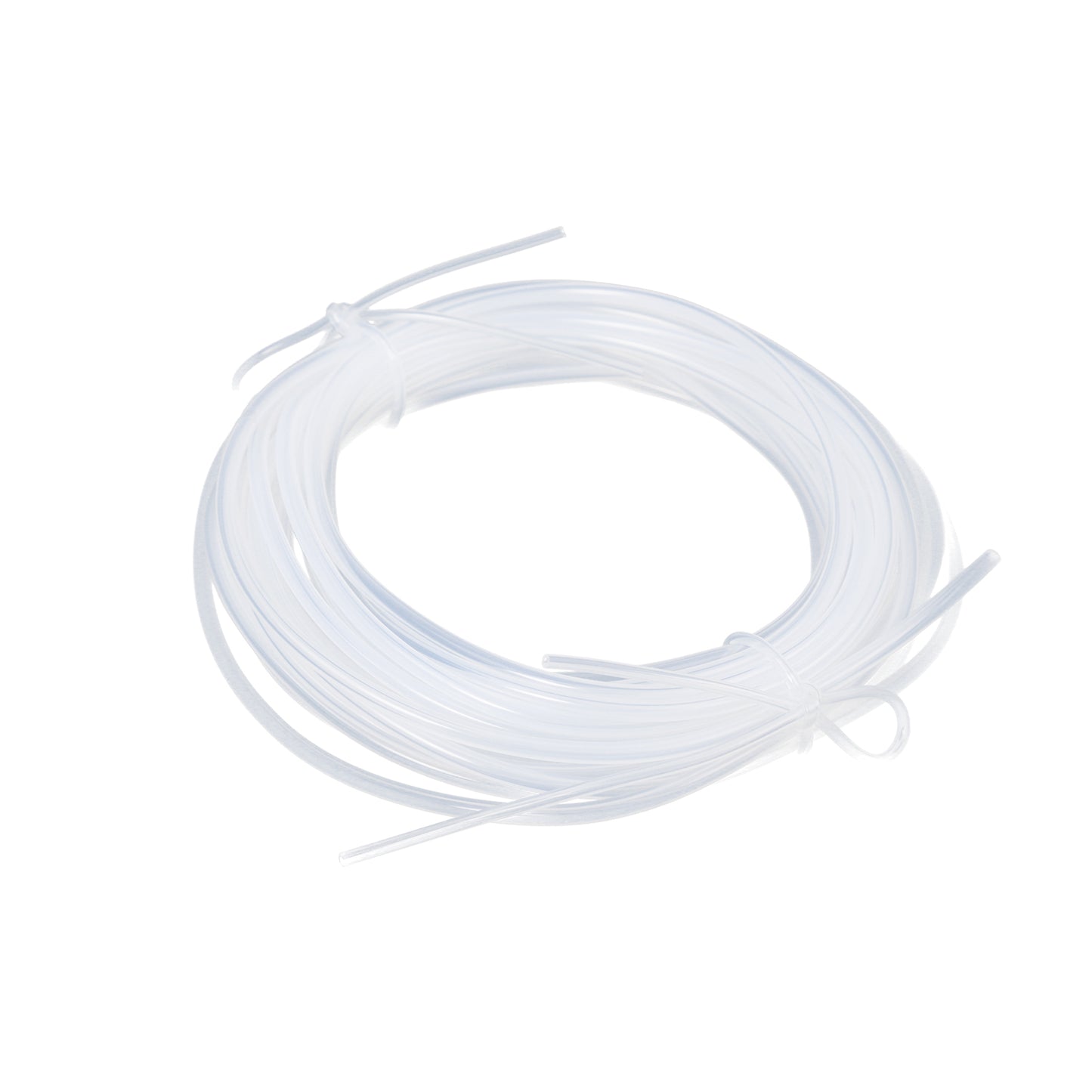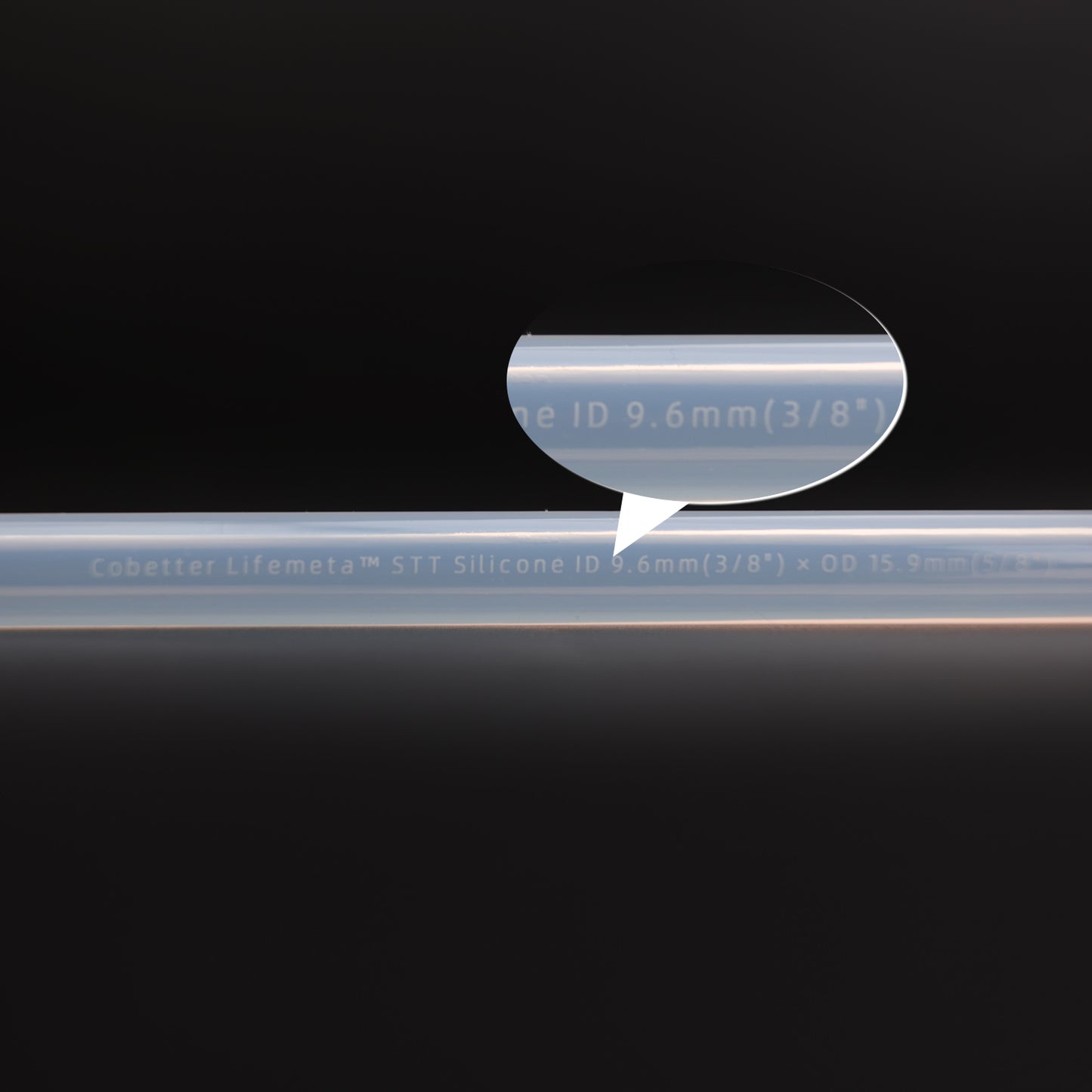Lifemeta™ STT Platinum Cured Silicone Tubing 15m/pk
Couldn't load pickup availability
Cobetter Lifemeta™ STT platinum-cured silicone tubing is designed for efficient fluid transfer. The product is manufactured using high-purity medical-grade raw materials through advanced extrusion equipment and molding tools, and can withstand extreme temperatures, a wide range of acid-alkali salts, organic solvents, and radiation, while also exhibiting good resilience and tear resistance, suitable for use in peristaltic pumps. The Lifemeta™ STT tubing is semi-transparent with a smooth internal surface, providing a reliable solution for low-adsorption applications.
Specifications
| Brand | Tubing Brand | Lifemeta™ STT |
| Physical Properties | Color | Translucent |
| Material | Silicone (Platinum-Cured) | |
| Length | 15m | |
| Durometer Hardness (Shore A) | 60 ± 5 | |
| Burst Strength | 0.4 - 0.9 MPa | |
| Tensile Strength | 7.05 - 8.96 MPa | |
| Elongation at Break | 378 - 443% | |
| Vacuum Resistance | >30 kPa | |
| Temperature Range | -51 °C to 232 °C | |
| Biological Safety | Endotoxins | <0.25 EU/ml |
| Bio-compatibility | Meet the requirement of USP<87> In Vitro Cytotoxicity Test; Meet the criteria of the USP<88> Biological Reactivity Test for Class VI-121°C plastics |
|
| Sterilization Option | Gamma-irradiation | 25-45 kGy in a sterile package and can not be re-sterilized. |
| Autoclave(121°C) | 25 cycles, 30min | |
| Package | Pack Size | 1/pk |
| Delivery Condition | Nonsterile | |
| Packaging | Coil packaged in double PE bag |
Features
- High purity, medical-grade raw materials
- Continuous monitoring of the production process
- Semi-transparent tubing with a smooth internal surface
- Resistant to various acids, alkalis, salts, and organic solvents
- Excellent tensile strength to ensure the toughness of the tubing
Applications
- Culture media and buffers preparation
- Supply feed liquids to bioreactors and cultivation systems
- Upstream and downstream transfer of base liquids
- Integration of single-use assemblies systems
- Laboratory fluid transfer applications
- Food processing applications
Regulatory Compliance
- Particulate matter in the product eluent meets the requirements in USP <788> for large volume parenterals.
- Aqueous extraction contains < 0.25 EU/mL as determined by Amebocyte Lysate, USP <85>.
- Meet the requirement of USP <87> In Vitro Biological Reactivity Test.
- Meet the criteria of the USP <88> Biological Reactivity Test for Class VI plastics.
- Meet the requirement of ISO 10993-4 In Vitro Hemolytic Test.
- The fluid contact component materials meet the FDA Indirect Food Additive requirements cited in 21 CFR 177–182.
- Products do not contain animal derived components and are free from TSE risk.
- These products are manufactured in a facility which adheres to ISO™ 9001:2015 Practices.
Related Articles
1. Cobetter High-Performance Lifemeta STT Platinum Cured Silicone Tubing
- Cobetter_Single-Use_Tubing_Catalog_250627 Download
































